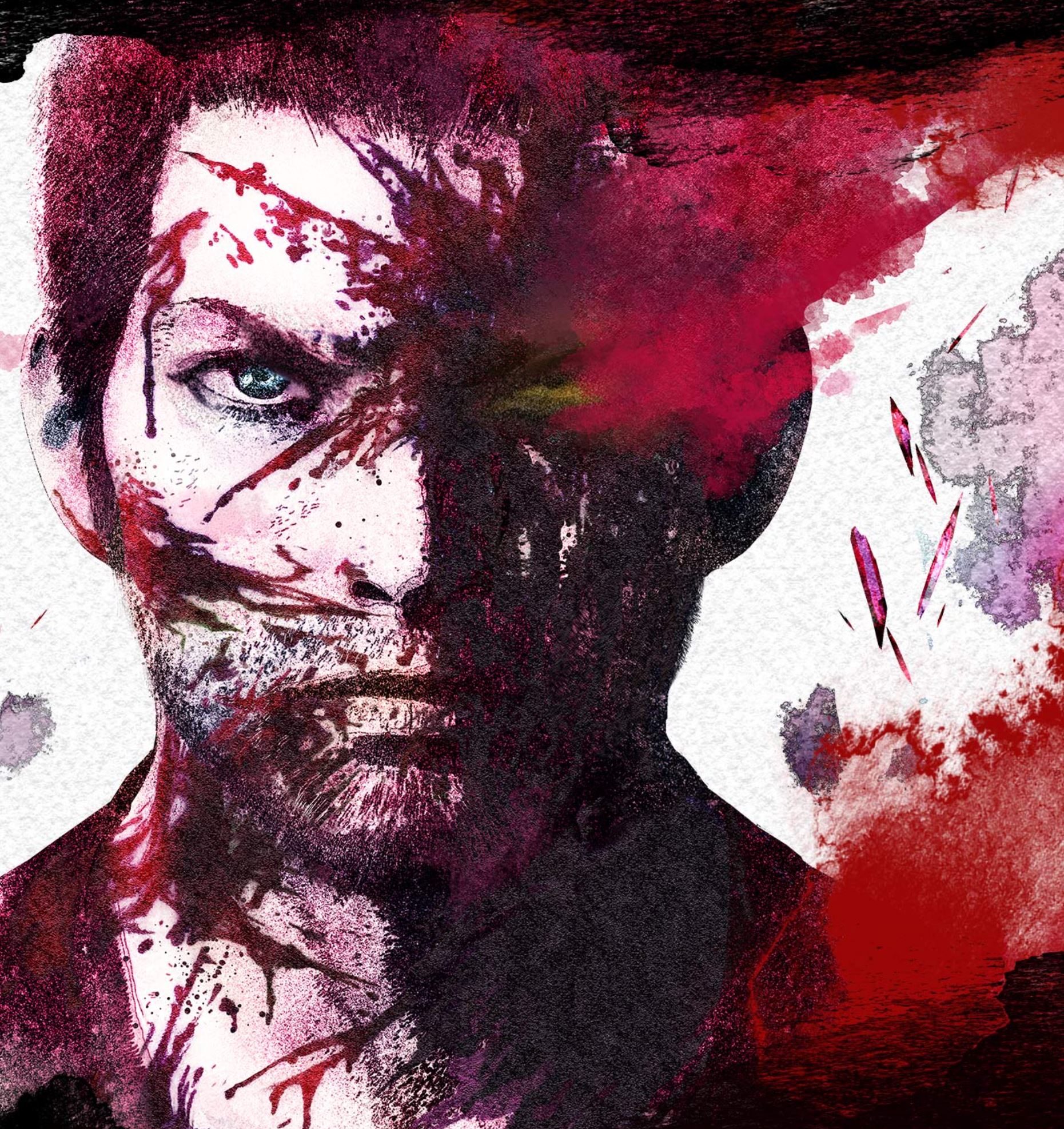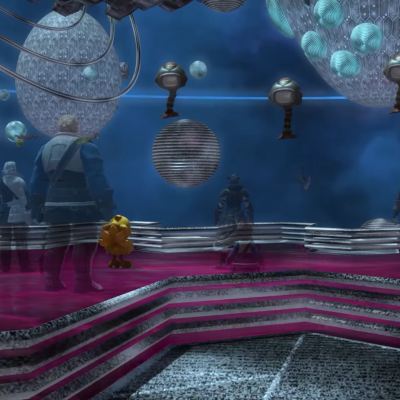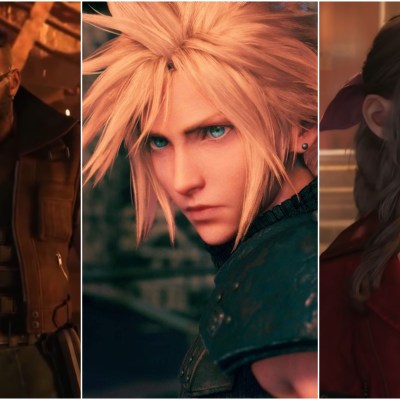I love “so bad, they’re good” movies. From canonical classics like Plan 9 From Outer Space and The Room to deeply flawed gems like Miami Connection and Samurai Cop, the best “so bad, they’re good” movies are more than simple guilty pleasures. As that designation suggests, they’re movies that make it genuinely hard to answer the seemingly simple question “Is it good?”
When it comes to gaming, though, it’s always been tougher to find proper “so bad, they’re good” titles. Games like Deadly Premonition, Metal Wolf Chaos, and Harvest all arguably belong in that category, but most bad games are just fundamentally unenjoyable experiences that are fun to mock. Games that fall so far into “bad” that they somehow end up landing closer to “good” are rare.
That’s what makes Stranger of Paradise: Final Fantasy Origin so special. In some ways, it’s a legitimately good game. In many other ways, it’s an unspeakably bad game. Ultimately, though, it’s a kind of “so bad, it’s good” game that we’ve never really seen before and may not see again for quite some time.
Stranger of Paradise: Final Fantasy Origin’s Combat is…Chaos
If there’s one element of the Stranger of Paradise experience that you could argue clearly elevates it above “so bad, it’s good” status, it would have to be the game’s combat system.
People have compared Stranger of Paradise’s combat to Dark Souls ever since the game was little more than a rumor, but that comparison falls apart pretty quickly once you actually play the game. While you’ll occasionally find yourself relying on the classic Soulsborne tactic of strafing around/blocking an enemy while you study their attack patterns and look for an opening, Stranger of Paradise generally encourages a more aggressive style of play. It’s certainly not as fast as the combat in a Devil May Cry game, but you will still often find yourself looking for ways to stay on offense.
What makes that approach work as well as it does here are the ways that the game encourages you to play defensively without actually slowing down. A well-timed block or Soul Shield activation will allow you to negate, deflect, or even absorb quite a lot of damage in this game, which means that you quickly need to become comfortable with reading a combat situation on the fly and learning to react appropriately. That system makes every attack feel significant and ensures that you’re constantly engaged in even the simplest combat sequences. There’s a rhythm to the whole thing that you don’t usually find outside of…well, rhythm games.
Ultimately, though, it’s the variety of Stranger of Paradise‘s combat that makes it so special. This game offers you a ton of tools to use during combat sequences, and you’re almost certainly making things harder on yourself if you don’t at least experiment with all of them. I was shocked by how often I found myself swapping between the game’s 27 (!) available Job classes as well as the various spells, items, and A.I. commands. Yes, you can ultimately pick your favorite Job, weapon, and strategy and rely on them for much of the game, but the fact that you almost always feel the need to experiment with everything available to you without the game outright forcing you to do so is a true accomplishment.
While it’s a little disappointing that Stranger of Paradise‘s loot system often boils down to you hitting the “optimize” button and moving on with your life, I do think that the game does enough elsewhere to encourage you to constantly consider a variety of playstyles and builds.
It also must be said that Stranger of Paradise’s Mortal Kombat-like finishing moves are almost always satisfying to witness. Some are ultimately better than others, but even repeated finishing blows almost always feel like the perfect way to end yet another intense fight.
Mind you, I’m not saying that the game’s combat is perfect. Your A.I. companions are too often begging to be replaced with real-life co-op partners, magic often feels less satisfying than melee, and some of the hit detection in this game is straight-up bad. While Stranger of Paradise generally does an excellent job of playing with new combat concepts, there are times when the whole thing feels a little awkward compared to the sublime combat featured in Team Ninja titles like Ninja Gaiden and Nioh.
However, that’s really only the tip of the iceberg when it comes to this game’s awkwardness…
Read more
Stranger of Paradise: Final Fantasy Origin’s Graphics and Level Design Boggle the Mind
I don’t think it’s entirely unfair to call Stranger of Paradise‘s graphics and level design “bad,” but that word really only scratches the surface of the game’s problems in those areas. It’s much more accurate to describe those elements of the game as “confusing.”
Simply put, I don’t understand this game on a technical level. While there are times when its visuals are legitimately impressive (Stranger of Paradise looks pretty good in screenshots), slowing down to closely examine nearly any aspect of its visual design soon reveals constantly repeated assets, blurry textures, and hit or miss lightning effects. It’s almost like the developers intended you to look at this game like it’s a Magic Eye puzzle. As long as you squint your eyes and hold your focus in a specific way, it kind of looks like what a modern action game should look like.
To make matters worse, the game’s unimpressive (or, at the very least, uneven) visuals don’t help its performance. There’s no way that a PS5 shouldn’t be able to run this game at 60 FPS at all times with no notable slowdown. Yet, even when playing Stranger of Paradise on PS5 with Performance Mode enabled, I constantly found myself dealing with framerate drops during sequences that didn’t even seem to be that technically demanding. The performance issues are obviously worse on previous-gen consoles, but again, you really shouldn’t have any performance issues in a game that doesn’t even look like it should be pushing the PS3 to its limits.
Even if you’re the type of gamer who doesn’t care about pure visuals or framerate drops (which is understandable), you will feel the pain of this game’s technical shortcomings in its level design.
It’s bad enough that so many of Stranger of Paradise’s levels are visually bland, but because the game repeats textures and basic design concepts so often, you’ll often find yourself lost in its repetitive realms. Is that nondescript hallway that leads to a set of stairs the one you’re looking for, or is the nondescript hallway that leads to a set of stairs a few feet in the other direction the one for you?
At some point during my Stranger of Paradise playthrough, I was forced to consider the possibility that Team Ninja deliberately designed this game to resemble a PlayStation 2 title. I know that sounds crazy (and it doesn’t excuse the performance issues), but it just explains so much.
If there was a version of Stranger of Paradise designed to look like the PS5 remake of Demon’s Souls and a fan “demade” it into a PS2 game that looked like this game actually does, everyone would compliment them on a nearly perfect translation. When a major modern game is shipped looking like this, though, then we really need an explanation that goes beyond presumed nostalgia for a very specific era of visuals that hasn’t really aged all that well in the first place.
Of course, it’s impossible to talk about Stranger of Paradise’s baffling design decisions without eventually getting around to the game’s characters, writing, and voice acting…
Stranger of Paradise: Final Fantasy Origin’s Writing and Story Are Somehow Worse Than You Think They Are
Stranger of Paradise’s awkward debut trailer inspired some fans to speculate that the preview simply had to be a bad representation of the final product’s writing and voice acting. However, it’s now clear that all the “Chaos” memes in the world weren’t enough to prepare us for how instance this game’s writing, voice acting, and characters are.
I mean…just look at this:
I know some fans are dismissing this game’s presentation problems by saying that Final Fantasy games are traditionally kind of awkward, but that’s a pretty weak argument. The writing in Final Fantasy games has historically been quite good, and the quality of the series’ voice acting has steadily improved since the PS2 era. Some FF titles are ultimately better than others in that department, but it’s impossible to look at the quality of Final Fantasy 14’s cinematic storytelling and suggest that Stranger of Paradise is somehow closer to this franchise’s standards.
I’ve also heard some say that this is kind of what you have to expect from Team Ninja at this point, and…well, that does make a little more sense. Team Ninja has a…unique style that often feels downright alien whenever it’s applied to someone else’s franchise. Just look at how Metroid: Other M turned out.
Yet, when you’re dealing with a game where every single dialog sequence, cutscene, and story beat is this bad, you’re forced to wonder if the game is aspiring to be something other than traditionally “good.”
So far as that goes, I’m almost ready to buy into the idea that this whole game is actually an elaborate parody of the Final Fantasy franchise. That wouldn’t quite explain everything, but it would at least explain the edgy male protagonist and this game’s numerous attempts to bounce between wildly different tones with only a poorly written piece of dialog as a buffer.
At the very least, we have to consider the possibility that someone at Team Ninja thought it would be fun to try to imagine what would happen if you attempted to turn the first Final Fantasy game’s simple plot into a modern narrative experience while expanding upon it as little as possible. This game feels like it was written with all of the enthusiasm of Paul Rudd being asked to clear his dishes in Wet Hot American Summer.
Then again, I’d be lying to you if I tried to say that there wasn’t a charm to the whole thing that makes Stranger of Paradise so much more interesting than “bad.”
Stranger of Paradise: Final Fantasy Origin’s Worst Qualities Are an Essential Part of the Experience
I once heard someone say that the best bad movies weren’t made to be bad movies. Instead, they were often made by misguided people either trying to make a great movie or trying to make a movie that they at least felt was as good as most of the other crap out there. It’s that quality that separates truly “so bad, they’re good” movies from intentionally bad movies like Snakes on a Plane, Sharknado, or Atlantic Rim.
That’s also the thing that makes Stranger of Paradise a rare example of the “so bad, it’s good” game.
Stranger of Paradise was clearly not designed to be a bad game or some kind of cheap cash-in that barely functions. In a strange way, though, the aspects of this game that are outright good (like the combat) make the elements of the game that are bewildering, bad, and downright weird that much harder to process. How can a studio that got something as difficult as compelling combat right manage to completely whiff on nearly everything else?
The only explanation I can offer is that this game was the result of a truly wild creative vision that looked a lot better in someone’s head than it actually ended up being. At some point, Team Ninja clearly decided this was going to be an over-the-top Final Fantasy spin-off with complex combat, alien dialog, a parody of a protagonist, and a retro aesthetic. I can tell you right now that they probably thought all of those pieces would come together better than they actually do, but there’s also a part of me that wonders if a “better” version of Stranger of Paradise would have also been a little more boring.
The best “so bad, they’re good” movies earn that title because their worst qualities strangely elevate them over not just every other bad movie but some legitimately great ones as well. That’s what makes Stranger of Paradise so special. The game’s writing, visuals, level design, acting, and characters may all be swings and misses, but the sometimes unexplainable charm of the whole package makes Stranger of Paradise more memorable than technically better titles that are ultimately easier to get out of your head.


